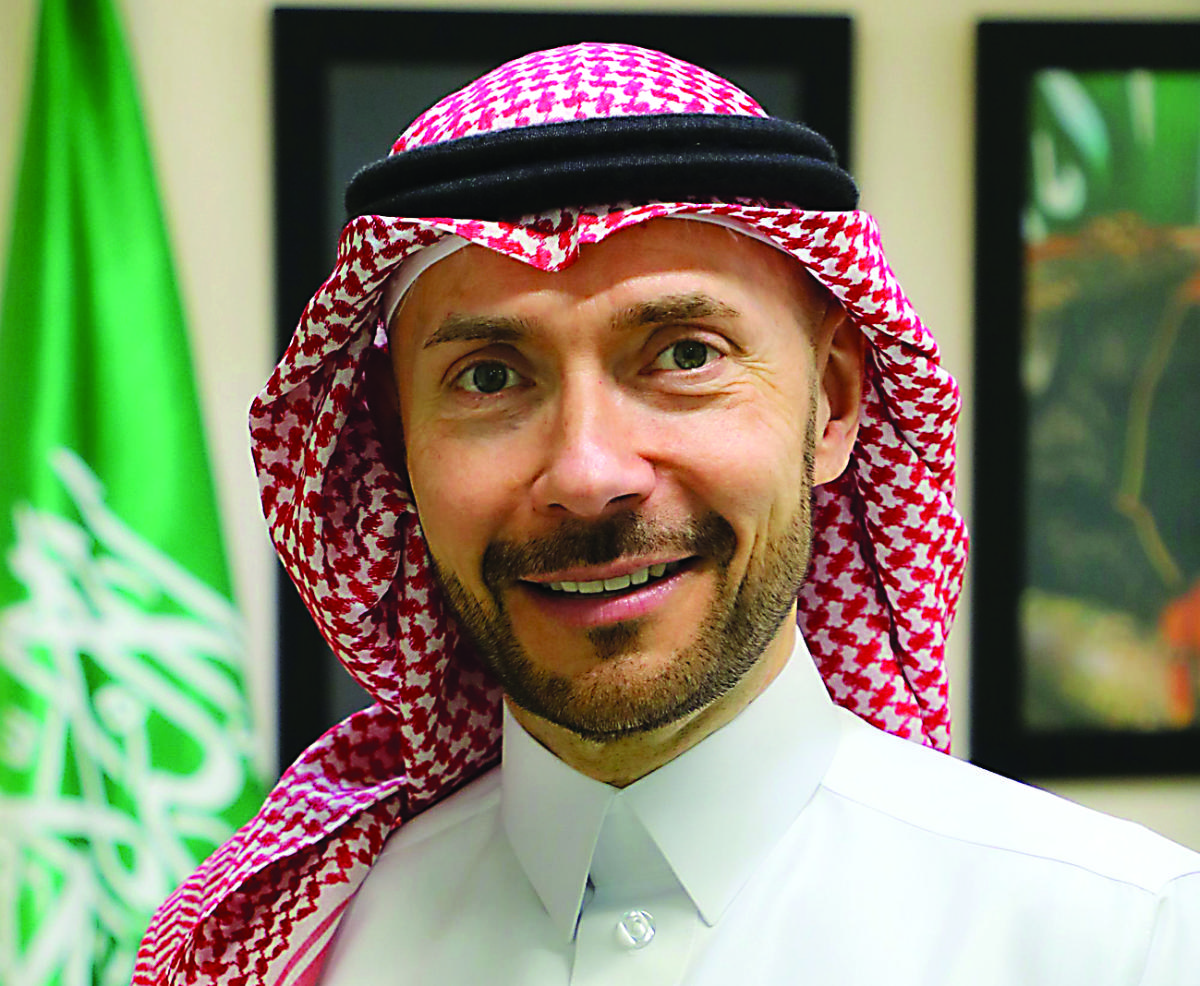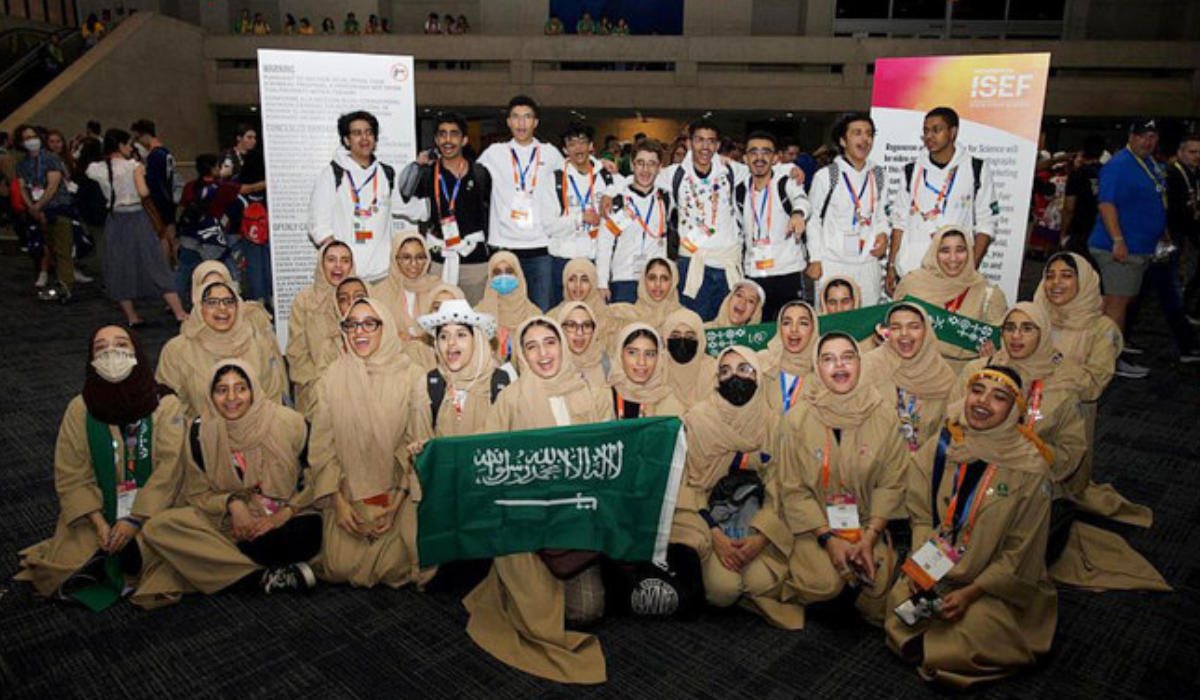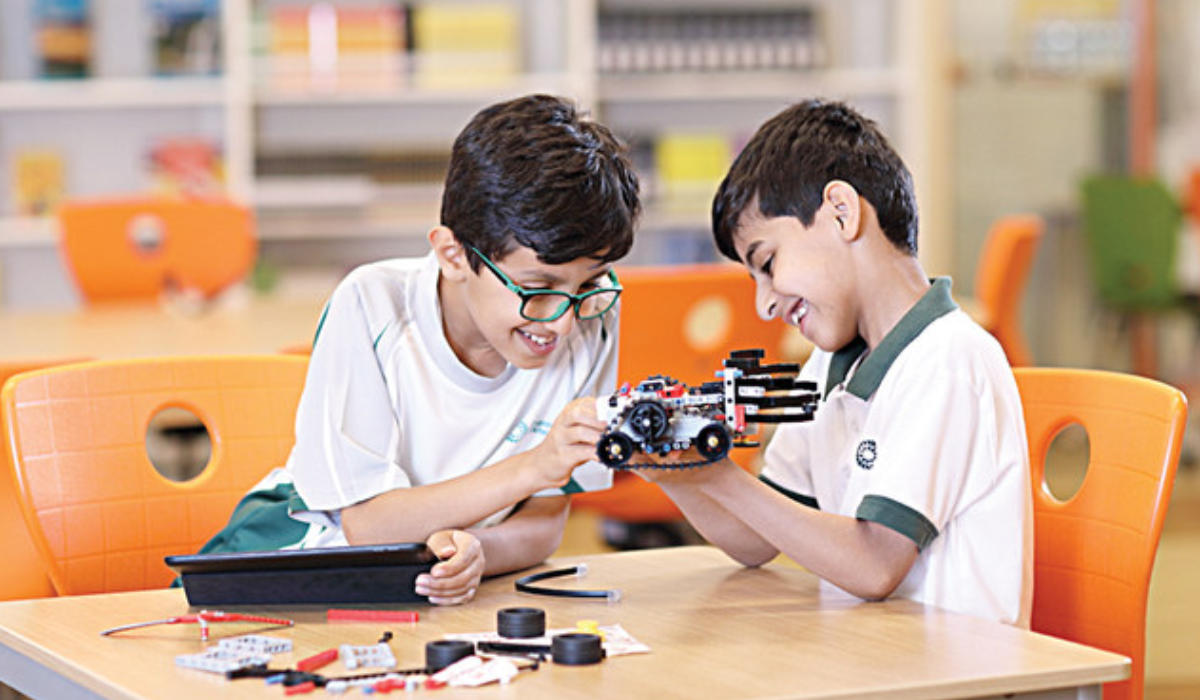RIYADH: Saudi Arabia’s efforts to promote youth intellectual development has been paying dividends on the international stage.
Over recent months, talented students from throughout the Kingdom have been making headlines winning awards in annual global competitions.
According to a report by the King Abdulaziz and His Companions Foundation for Giftedness and Creativity (Mawhiba), the number of awards won by the country’s young people in international scientific contests was 57 in 2020, 72 in 2021, and 94 last year.

Dr. Steffen Sommer, Misk Schools director general
By providing a supportive environment, Mawhiba, along with Misk Schools, have been at the forefront of Saudi Arabia’s youth empowerment program.
Misk Schools, established in 2016 by Crown Prince Mohammed bin Salman, has identified and nurtured young Saudis’ abilities in several fields including artificial intelligence, space exploration, professional sports, and tourism.
Dr. Steffen Sommer, the school’s director general, said: “Empowering youth enhances their potential to innovate, drive entrepreneurship, and create jobs, which in turn boosts productivity and economic growth.
When you empower young people, they become self-assured, independent thinkers, motivated to pursue careers that contribute to their nation’s future, as well as their own.
Dr. Steffen Sommer, Misk Schools director general
“When you empower young people, they become self-assured, independent thinkers, motivated to pursue careers that contribute to their nation’s future, as well as their own.”
Mawhiba’s program to identify gifted young people aims to measure student talent in science, technology, and other areas of national priority, using an advanced scientific methodology for selection.

This year, Saudi students competed with more than 1,700 students from over 70 countries for major prizes at ISEF. (SPA)
Dr. Basil Al-Sadhan, Mawhiba’s deputy secretary-general, said: “By identifying gifted students, we are building a national base of talent that contributes to achieving the transformation of the Saudi economy.”
Once a gifted student has been identified, Mawhiba implements a four-part journey strategy that starts with an exploration stage which involves defining the individual’s interests and scientific capabilities.
They are then offered specialized programs, before being introduced to more advanced initiatives allowing them to communicate with scientists and specialists. A final communication stage provides an effective network for the exchange of experiences and services.

"As the go-to school for leadership, we are here to find and educate the future leaders of the Kingdom," said Dr. Steffen Sommer, the director general at Misk Schools. (SPA)
The scheme is accompanied by empowerment services and programs that include skills development and guidance.
“The program is directed to more than 180,000 gifted students discovered through more than half-a-million detection processes and offers intensive care through its 175 curricula designed for gifted students to improve their capabilities and develop their talent.
“The Mawhiba Foundation, since its inception more than a quarter-of-a-century ago, establishes a Saudi intellectual capital, considering that talent management is one of the most important pillars of development,” Al-Sadhan added.
The empowerment of youth is considered by the Saudi leadership to be important to increasing self-confidence, productivity, and innovation, in the process helping young people contribute to a vibrant society, thriving economy, and an ambitious nation.


































